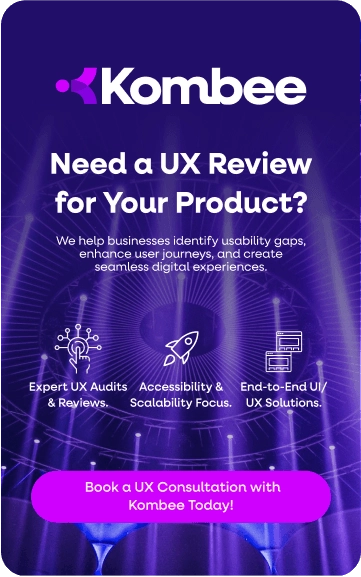Introduction
Imagine you walk into a store where everything feels tailored just for you with your favorite brands, personalized offers and product suggestions which actually make sense. That’s exactly what shoppers expect from online stores in 2025. Personalization is no longer a bonus but the standard. So if you're managing an online store or scaling digital sales in the B2B space then staying ahead means creating shopping experiences that feel personal and seamless. Custom eCommerce solutions are now the key to making that happen.
In this blog, we’ll explore how personalization, powered by custom e-commerce development, drives success for modern B2B ecommerce websites.
Why Personalization Is Now the Standard
Earlier, personalization used to mean using someone's first name in an email. Not anymore. In 2025, customers expect websites to know what they want before they do.
They want:
- Product recommendations based on behavior.
- Offers tailored to their interests.
- Checkout options that fit how they shop.
This is no longer “nice to have.” If your website doesn't deliver, they'll go somewhere that does. And that’s where a custom eCommerce solution becomes your competitive edge.
Read More: Wondering why so many eCommerce websites fail? Read more about why 80% of e-commerce websites fail (and how yours won’t!) and learn how to avoid the most common pitfalls.
Why Off-the-Shelf Platforms Fall Short
You may have tried platforms like Shopify or Magento. They’re quick to launch and offer plug-and-play options. But here’s the problem: they’re made for everyone which means they’re not made for you.
Generic platforms come with limitations:
- Fixed templates that restrict your brand’s identity.
- Limited integration with your internal systems.
- Poor adaptability to unique customer journeys.
If you're serious about scaling, especially in enterprise eCommerce platforms, these limits become roadblocks. You need flexibility, control and also the ability to adapt fast.
That’s why more businesses are turning to custom ecommerce website development to build exactly what their customers need when and how they need it.
Hybrid vs Native Apps: What’s the Difference?

When it comes to mobile development you’ve probably heard people debate: hybrid app vs native app which is better?
Now, what is native mobile application development? It’s when you build apps specifically for one platform like iOS or Android using platform-specific tools and languages. It offers top-tier performance and smooth UI but it takes more time and money.
In contrast, hybrid app development services allow you to build once and deploy everywhere with most of the experience still feeling native to users.
Read More: If you need more detailed information, check our blog, What’s the Difference Between Native, Hybrid, and Cross-Platform Apps?
What Is a Custom eCommerce Solution?
A custom ecommerce solution is built from the ground up. It’s not a pre-made template; it’s your online store, your way.
Think of it like building your dream house. You choose the layout and the materials as well as the design and the tech inside. Everything works the way you want it to because it’s built just for you.
This is especially powerful for B2B ecommerce websites where buying processes are more complex. Whether it's bulk ordering, customer-specific pricing or custom product configurations a one-size-fits-all platform just won’t cut it.
How Custom eCommerce Development Powers Personalization

Let’s understand exactly how custom e-commerce development lets you personalize like never before:
1. AI-Powered Product Recommendations
Your store can learn from every click, search and purchase. AI engines can surface the most relevant products for every individual shopper in real time.
2. Customer Segmentation & Behavioral Targeting
You can group customers based on behavior, location, purchase history or also industry and deliver targeted content and offers to each group. That’s gold for B2B ecommerce websites.
3. Omnichannel Personalization
So whether your customer is on desktop, mobile or in-store, a custom eCommerce solution creates a consistent experience. Promotions, messages and also content are unified across all touchpoints.
4. Dynamic Content Adaptation
The homepage, banners and product listings adapt based on who's browsing. A new customer sees different content than a returning buyer. And it's all automatic.
5. Customized Checkout Experiences
Speed matters. Custom platforms let you streamline checkout with saved payment options, shipping preferences and loyalty rewards. It reduces cart abandonment and increases conversion.
Why It’s a Must-Have for Enterprise Growth
An enterprise eCommerce platform needs more than good design. It needs robust infrastructure that integrates with your ERP, CRM, inventory systems and more. With custom e-commerce development, you control the backend just as much as the front-end experience.
This isn’t just about looking good. It’s about:
- Automating operations.
- Reducing errors.
- Scaling faster.
- Expanding globally.
- Adapting quickly to market changes.
So if you’re selling thousands of SKUs or operating in multiple regions then a custom eCommerce solution helps you manage complexity without sacrificing performance.
Real Business Benefits You’ll See
When you invest in a tailored custom eCommerce solution, you don’t just get personalization. You get:
- Higher customer loyalty: Shoppers return because the experience feels like it was made for them.
- Better efficiency: Integrated systems reduce manual work and errors.
- Faster innovation: You’re not waiting on platform updates and you build what you need.
- Stronger brand identity: You stand out with a site that reflects your values and vision.
And for B2B ecommerce websites, it helps build long-term client relationships. When your clients feel seen and valued, they’re more likely to stay and grow with you.
Read More: Interested in optimizing your eCommerce website’s design? Check out our blog, web design practices for e-commerce websites to create an unforgettable shopping experience.
Is Custom eCommerce Right for You?
Great question. Consider going custom if:
- Your products require complex configurations.
- You have a roadmap for global growth or innovation (think AR, voice commerce, subscriptions).
- You need deep integration with existing tools and workflows.
- Your brand is central to your customer experience.
- You want total control over the user journey.
If any of those hit home, a custom eCommerce solution isn’t just smart, it’s essential.
Conclusion
In 2025 personalization isn’t a trend but the foundation of successful digital commerce. With custom e-commerce development you can create smart, seamless and highly personal shopping experiences. Whether you’re launching an enterprise ecommerce platform or enhancing your B2B ecommerce website the success comes from truly understanding your customers.
That’s where Kombee comes in. We specialize in creating the best and tailored custom eCommerce solutions designed to grow with your business. Ready to stand out and deliver experiences your customers will never forget?
Frequently Asked Questions
1. What is the future of eCommerce in 2025?
eCommerce in 2025 will focus on AI, AR, mobile shopping, and omnichannel experiences. Consumers will enjoy faster, more personalized, and immersive interactions powered by real-time data and intelligent automation.
2. Why is personalization important in eCommerce?
Personalization boosts customer satisfaction by showing relevant products and content. It increases engagement, loyalty, and sales by using data to tailor the shopping experience to individual preferences and behaviors.
3. What are two major reasons why a company would develop custom software?
Companies create custom software to address specific business needs and gain a competitive edge. It allows tailored features, better integration, and flexibility that off-the-shelf solutions often lack.
4. Which technology is considered key for the future of personalized eCommerce experiences?
Artificial Intelligence (AI) is key, enabling dynamic personalization, predictive recommendations, and data-driven insights that adapt to customer behavior in real time.





